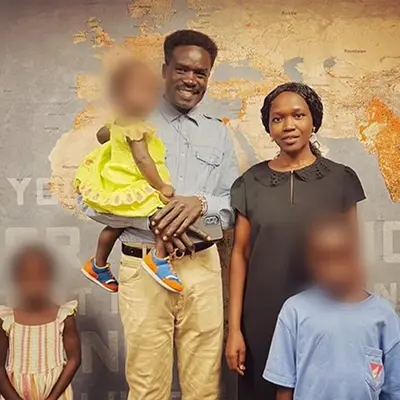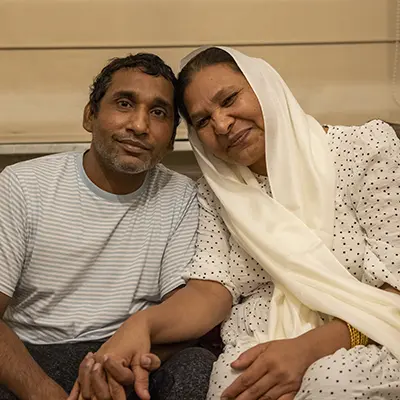- Yahaya Sharif-Aminu, a Nigerian Sufi musician sentenced to death for a social media message, is challenging the constitutionality of one of the country’s most egregious blasphemy laws.
- ADF International is supporting his appeal to the Nigerian Supreme Court, which could overturn Sharia-based blasphemy laws in Northern Nigeria.
ABUJA, NIGERIA (14 November 2022) – A notice of appeal has been filed with the Supreme Court of Nigeria for the case of Yahaya Sharif-Aminu, a Nigerian Sufi musician, who was sentenced to death for charges of blasphemy. Despite not having legal representation at the time, Yahaya was convicted of blasphemy in 2020 after sharing audio messages deemed blasphemous toward the Prophet Mohammed.
Yahaya’s Supreme Court appeal challenges the constitutionality of the strict blasphemy law of Kano State and has the potential to overturn Sharia-based blasphemy laws in Northern Nigeria.
“Yahaya’s case is incredibly important as it has the potential to overturn blasphemy laws that threaten the rights of all religious minorities in Nigeria. We are hopeful that the Supreme Court will finally declare these blasphemy laws to be unconstitutional and in direct violation of international human rights law,” said Kelsey Zorzi, Director of Advocacy for Global Religious Freedom for ADF International.
Zorzi further stated: “As a country with immense influence throughout Africa and the Muslim world, Nigeria has an unprecedented opportunity to lead the way toward abolishing draconian blasphemy laws that continue to plague minorities around the globe”.
Case Summary
As a member of a minority faith in Nigeria, Yahaya has been targeted under the law for expressing his beliefs. His imprisonment, looming charges, and death sentence constitute religious freedom violations of the greatest severity.
Yahaya initially was convicted without a lawyer and sentenced to death on 10 August 2020 by the Hausawa Filin Hockey upper-Sharia court. The conviction was overturned, and a new trial ordered in January 2021 based on procedural irregularities. Yahaya appealed the retrial order, arguing that the case should be dismissed entirely and the blasphemy law be ruled unconstitutional. In August 2022, a Court of Appeal upheld the constitutionality of the blasphemy law and affirmed the retrial order.
Yahaya remains in jail without bail while awaiting the retrial, where he still faces a potential death penalty.
Blasphemy Law in Nigeria
Yahaya’s case is far from an isolated incident. The criminalization of blasphemy in Nigeria carries with it dangerous implications for the country as a whole. In a country of more than 200 million, split nearly evenly between Christians and Muslims, blasphemy laws are a significant driver of societal tensions. These laws punish the innocent for expressing their beliefs, silence people from sharing their faith, and perpetuate societal violence. Kano State’s blasphemy law, codified at section 382(b) of the Sharia Penal Code, inflicts severe harm on minority Muslims, Christian converts, and others.
Blasphemy accusations can also lead to brutal mob violence. In May 2022, Christian student Deborah Emmanuel Yakubu was stoned and beaten to death, and her body burnt, by her Muslim classmates in Sokoto State after they accused her of blasphemy for thanking Jesus for helping her pass an exam. Another Christian woman, Rhoda Jatau, condemned the violence against Yakubu on social media, and subsequently faced death threats, mob violence, and now her own blasphemy trial.
“The justice system in Nigeria should be protecting people who express their faith peacefully, not punishing them with death. We pray that the Supreme Court of Nigeria rules that Yahaya has committed no crime and that the blasphemy laws that have targeted him and put so many others at risk will be overturned. Blasphemy laws are incompatible with religious freedom and a significant contributor to violence and instability in the country,” said Sean Nelson, Legal Counsel, Global Religious Freedom for ADF International.
“Yahaya is an artist and musician, who, for freely expressing himself, could now lose his life under the death penalty. He is committed to correcting the grave injustice he has endured, not only for himself, but for all who suffer under blasphemy laws. Our appeal to the Supreme Court is this: overturn these dangerous laws and bring us one step closer to a peaceful Nigeria,” said Kola Alapinni, Yahaya’s lawyer.







